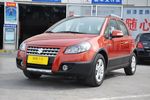In order to stimulate consumption and domestic demand as well as promote economic development, Chinese government issued preferential policies in the automotive field one year ago. For example, the purchase tax of vehicles was reduced by half. Now the preferential policies are going to meet the deadline. Now it is time to discuss the future of those policies and how to modify them. According to reports, Chinese Premier Wen Jiabao chaired a State Council executive meeting on December 9. The members discussed how to upgrade a number of policy measures which are aimed at promoting consumption. The final decision shows that purchase-tax cut for 1.6-liter and smaller passenger vehicles will continue in 2010. However, the tax rate will be adjusted and the 50% reduction will be altered to 7.5% discount, according to Auto.sohu.com.
Purchase-tax cut is still a positive policy.
Prior to the release of the final result, some people expected that the preferential policies of purchase tax would be abandoned. Some believed the tax rate would stay the same. Others may think that the concession would be expanded. Nevertheless, all of those forecasts are not the case. In author's opinion, the final decision about new rate of purchase tax is prudent and appropriate.
Although China's economic performance is relatively good and the growth rate is recovering fast, there are still uncertainties due to the impact of the global economic downturn. In order to ensure the economic development China has implemented a number of significant measures. There are signs that we may borrow against the future. The coming year's condition is not clear and China is still affected by the crisis. We should not immediately stop the preferential policies aimed at stimulating consumption. Those policies have been proven to be very effective through practice.
In addition, if we restored the original purchase tax policy, the automotive consumption would be affected directly and the auto market in 2010 would be full of suspense. However, Chinese economy, especially the fast-growing automotive market, reflects the danger of overheated development. Some people believed that the auto market would keep booming even without preferential policies. Therefore certain degree of slowing down is appropriate in order to ensure healthy and sustainable growth and development. China should prevent the emergence of abnormal development which is too slow or too fast. It is a prudent decision to adjust the preferential discount from 5% to 7.5%. The decision is reasonable and easily acceptable to people.
If you bought a 100,000-yuan car one year ago, you had to pay around 8,500 yuan for the purchase tax. In 2009, you have to pay 4,300 yuan. In 2010, you will pay about 6,400 yuan. Compared with the current tax rate, the policies for 2010 require another 2,000 yuan. However, consumers will still enjoy a 2,000-yuan cut on the basis of past practice.
The impacts on auto market in the future.
How will the new policies influence the auto market in the future? We will embrace the year of 2010 with few days left. The new purchase-tax policies will be implemented soon. A mad craze for buying cars will continue by the end of 2009, which will further stimulate the booming auto market. The peak of automotive consumption usually emerges in the last month. As a result, the auto sales in December will hit a record. After a booming month the heat of auto market will not fade away. A discount is better than none. So the performance of auto market in 2010 will not be inferior to this year. Since China's automotive purchasing power is in rising period, consumption growth is the rule, which is the general trend that can not be countered. In addition to the preferential polices of purchase tax, the extension of promoting auto sales in countryside and the rising of auto trade-in allowance standard will also stimulate the consumption demand in the rural market. The influence and benefits of preferential policies will be better in 2010 than in this year.
If we analyze the issue from the growth of automobile market, the cars with 1.6-liter and smaller engines are still the mainstream. Those cars enjoy the fastest growth and largest sales. In fact, the cars with 2.0-liter and smaller engines are growing fast as well, which is mainly due to two regards. First of all, the price level of fuel is indeed far-fetched. Second, automakers commit to the improvement and upgrading of fuel efficiency. The manufacturers apply the engines with new technologies, which promote the marketing of models with larger engines. Both factors will promote the development of auto market in 2010.
At the same time we must also see as the main part of automobile industry or automotive market, automobile manufacturers are passive. With the development of market and policies, automakers will have better performance. However, competition is inevitable. In order to attract consumers and expand market share, automakers will take some measures to benefit consumers, such as paying the purchase tax for the consumers. Therefore, in author's opinion, the prospect of the auto market in 2010 is promising. (Translator: Qinghua/Hanxin)
See original Chinese report Please click
















![[车春秋]成品油价格再次上调](http://i1.itc.cn/20101222/29e_a9dd0c61_1984_4e01_84af_f99c33103082_0.jpg)







